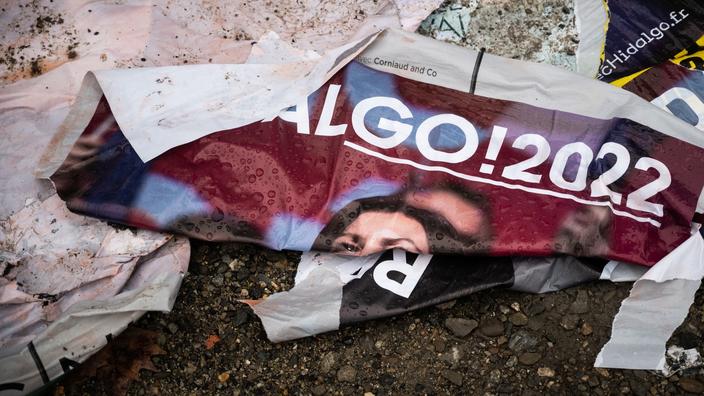Struggling in the polls, the left can no longer count on the working classes to ward off fate: at least that's what a study by IFOP* tends to show for the review Ecran de Veille.
According to the opinion institute, only 36% of the inhabitants of working-class neighborhoods would consider voting for a left-wing candidate in the presidential election, while these cities voted 54% for the left in 2012 and 38% in 2017.
Read also43 mayors appeal to increase the resources allocated to “working-class neighborhoods”
In its methodology, the IFOP targeted impoverished suburbs by retaining all of these municipalities, and not just the inhabitants of neighborhoods classified as priorities. The respondents are therefore inhabitants of suburban towns belonging to the last decile in terms of median income, that is to say the 10% of the poorest towns among those located on the outskirts of a large agglomeration. Thus in the priority neighborhoods of city policy, 56% of those polled plan to vote for a left-wing candidate (46% for a "
radical left
" candidate ), a score that declines considerably when the sample includes the all the inhabitants of these suburban towns with a very low level of median income.
The right progresses by 9 points in the voting intentions of the “popular” suburbs compared to its scores obtained in 2012. IFOP
“
We are seeing a shift to the right in these towns,
” comments the director of the FIFG's political & news division, François Kraus: the right has indeed gained 10 points in voting intentions compared to the 2012 results. He adds: “
In addition, the vote is clearly polarized to the extremes, notably under the effect of the appearance of the candidacy of Éric Zemmour who obtains 12% of the voting intentions in these cities, when Marine Le Pen remains at 22%
”. Jean-Luc Mélenchon, meanwhile, loses nine points compared to the score he made in his cities in 2017. In detail theAn analysis of socio-professional categories also reveals that 60% of workers in these towns plan to vote for a candidate from the “
populist national right
”.
The analysis of the determinants of the vote reveals that if the voters of these cities are as numerous as the general population to attach importance to the defense of women's rights, the protection of the environment or the fight against racism ( even though 39% of the inhabitants of these neighborhoods believe they have already faced some form of discrimination, compared to 24% on the national average), they do however attach much more importance than the national average to subjects such as the power to purchasing and rising wages, as well as controlling taxes. The concern for insecurity and the fight against illegal immigration is also similar in these cities and in the national average.
“The analysis of the motivations of voters in working-class suburbs is in line with those of a recent survey of
American workers
, a study which showed that the latter were less sensitive to progressive themes (eg gender, anti-racism, etc.) than to the economic and social stakes enabling them to improve their material living conditions
”, further comments François Kraus, adding: “
The lack of sensitivity of the suburbs to these progressive themes thus contradicts the so-called “
Terra nova” thesis
(2011) which then encouraged the PS to constitute a new urban electorate including graduates, young people, minorities from working-class neighborhoods and women around cultural, progressive values.
The analyst further emphasizes the discrepancy between the high proportion of inhabitants of these neighborhoods who feel discriminated against in their lives, and the lack of importance given to this subject to determine their vote.
"
A gap which can also be explained by the high abstention among young people in these neighborhoods
", he specifies however.
*IFOP survey for Screen Watch conducted by self-administered online questionnaire from December 13 to 16, 2021, with a sample of 1003 people, representative of the adult population residing in the 10% of
the "
poorest suburbs" of France metropolitan.








/cloudfront-eu-central-1.images.arcpublishing.com/prisa/B42JEGVZNRCR3GWAER54BAPQZY.jpg)
/cloudfront-eu-central-1.images.arcpublishing.com/prisa/3JYBYIKF4VE6HFBF74Q3XUM75Q.jpg)